- Home
- Bill James
Noose Page 8
Noose Read online
Page 8
‘No, not fair, but stabbing somebody to death is quite serious.’
‘The hate came over me.’
‘Why didn’t you run while I was away fetching the copper?’ Ian replied. ‘Nobody could have stopped you. They wouldn’t have tried, even. They wanted to get rid of you. They’d have been glad. They’re all afraid. We’re not used to this sort of thing, a raid and then a murder. The two together upset people.’
‘Oh, I don’t know. Where would I run to? What did the constable say – I’m not the sort?’
‘You mean you’d be like Cain, after he killed Abel? Fleeing but nowhere to hide?’
‘You go to Sunday school, do you?’
‘My father needs a sleep in the armchair on Sunday afternoons. I’d say he deserves it, because he’s out dredging sand for most of the week. He thought I’d better go to Sunday school so the house was quiet for a while. I got a bit fed up with it, though.’ He didn’t mention using the collection money for sweets.
‘It’s quite important to have a father, to help keep the family together.’
‘Yes, I know. My father thought we could all get under the kitchen table in a raid, but my mother wanted company, I think. The table had fat legs with curls of wood on them, but they might not have been able to stand it if the house was hit.’
‘This part of the city’s been targeted, I think.’
‘Near the docks and the ammo works,’ Ian replied. ‘I don’t think you live around here.’
‘Used to when I was young. Quite often, I come on the tram to see a lady friend. It could be a wedding matter soon. I’ll propose.’ He laughed and went down on one knee alongside the concrete, his wrists handcuffed together in front of him. It was a kind of joke. He seemed very jolly although he’d just killed his own brother. And had handcuffs on. ‘Or I would have – if this hadn’t happened. She’s a nurse.’ He stood properly again. ‘But tonight the raid starts before I reach where she lives and I have to get into the shelter here. And whom do I run into? My brother. Luck. Good? Bad?’
Ian thought he was the kind of man who’d say ‘whom’ like that. ‘Known as a coincidence,’ Ian said.
‘When my brother scooped the money he disappeared. He knew I’d be looking for him. He must have taken a place around here to hide. It’s not the kind of district I’d expect him to be in these days – especially when he had that money. I always bring the clasp knife when I come this way to see the lady. Protection.’ He frowned and paused. ‘Oh, look, sorry, you live here, don’t you? I just meant that if I …’
‘It was an accident we were in the shelter, too,’ Ian replied. ‘Not enough room under the table when Clifford came from next door. I expect if my father had been at home he would have made us all stay under the table, never mind how crowded it was because of Clifford. Yes, fat legs looking strong, but only wood. It was completely my father’s idea – the table. I’d say he’s not always very clever. There are often problems in families, aren’t there? If the house fell down that table wouldn’t be any use. Rubble, bricks – they could smash a table regardless of thick legs. I’m glad we came to this shelter because I saw in Larch Street how a house could just tumble – even a mansion – so much really heavy stuff. Why do you see a lady here if you don’t like this part of town any longer?’
‘She’s still the one I want.’
‘What will happen to her now?’
‘That’s a problem, yes.’ He stared at Ian. ‘Look, would you take her a note for me? She’d most likely give you half a crown.’
‘Have you got a pencil and some paper?’ Ian said.
‘In the inside pocket of my jacket. A notebook and fountain pen.’ He couldn’t reach there himself, because of the handcuffs.
‘Shall I look?’ Ian said.
‘You’ll have to, and write it.’
Ian put his hand under the two layers of clothes, the overcoat and the jacket and tried to search. He could feel the man’s fast heartbeat. But the policeman, pushing a bike and with his helmet on, came back just then.
‘What’s happening?’ he said.
‘He wants me to let somebody know what’s gone wrong.’
‘Let who know?’ the policeman said.
‘It’s a friend. A lady,’ Ian said.
‘You’d better leave it,’ the policeman said. ‘You’re interfering with an accused. He’ll have to be searched, in a proper fashion, according to regulations. I don’t want you going through his pockets. You’ve been helpful. Don’t spoil it. I still think it’s wrong of you to have a helmet, but we’ll forget that. But going through his pockets is a different matter. Very.’ He leaned his bicycle against the wall under ‘Britons never shall be slaves’ and went into the shelter for the wrapped knife. He came out and put it into his saddle bag. Ian gave Mr Bell’s helmet back. Ian, the policeman and the prisoner began to make for the police station, the policeman pushing his bike. They had to go back through Larch Street on their way. People were out on the pavements now, looking at the damage, watching the firemen. The frozen water had spread out into the middle of the street. It was difficult to walk. The sharp smell of burning irritated Ian’s nostrils like scorched dust. When one group spotted the policeman and Ian with a man in handcuffs they began to shout and shake their fists and spit. One of the women screamed that he must be a dirty looter like she’d read about in the London blitz, and a good job the police had him. ‘No, you’re wrong, he only murdered his brother for the money,’ Ian shouted. ‘It was behind volumes, but his brother had an idea he’d find it there because banks collapsed.’
At the police station, the officer told an inspector what had happened in the shelter and in Larch Street. The inspector took a writing pad and said a knifing was still a knifing, on a blitz night or any other. ‘This boy can give a witness statement, can he? Then we’ll make charges.’ He asked Ian his name and address and began to write down details.
That was it: ‘charges’. This meant he would have to say in court what he had seen. Although Clifford had been the first to spot the knife, Ian thought he would be the one they’d want to say what happened, because he’d been around to Larch Street as well as in the shelter, and he’d talked with the man who’d be charged. He wanted to ask the man for the name and address of the lady so she wouldn’t be left wondering where he was, but they’d taken him to another room to answer questions.
When Ian went home after the police station, his father was there. The train from Newport had stopped a long way from Cardiff station because of the raid and he’d had to wait in it, as Ian’s mother guessed. His mother had told him what happened, and Mr Charteris was ratty because they hadn’t stayed under the kitchen table, which was his special idea for taking cover when the bombs came. ‘Why did you have to go to the street shelter?’ he asked Ian’s mother. ‘We don’t have to rely on something for the general public. We have our own way of handling things. Now look at the result. The family’s involved in a dirty murder. I spend great efforts keeping our reputation on top, but you wouldn’t stay under the table.’
‘The one with the knife said he was only visiting. He’d come to see a lady,’ Ian replied.
‘Yes, I expect he had. I know their sort,’ his father said.
‘I’m sure you do,’ his mother said.
‘He has considered a wedding. Their mother had volumes and book shelves,’ Ian said.
‘Anyway, we’re not involved,’ Ian’s mother said. ‘We saw it, that’s all.’
‘It sounds like involved to me,’ his father said. ‘Our boy at the police station so late. At a police station in the middle of the night! What sort of family has one of their children at a police station in the middle of the night? And instead he could have been at home here decently under the kitchen table. There’ll be statements. I’ve heard of that sort of thing.’
‘Mr and Mrs Bell are going to open the shop and we can have free fish and chips,’ Ian said. ‘Clifford too. I had Mr Bell’s helmet.’
‘Don’t talk to me
about fish and chips,’ his father said. ‘This is a bigger situation than that. It stands to reason that things would have been completely different if you’d stayed under the table.’
‘Not completely different,’ his mother said. ‘There’d still have been the trouble in the shelter.’
‘Completely different for us,’ his father said. ‘For us. It was because I knew rows about money and a knifing might occur in a public shelter that I told you to go under the table at home in a raid. We don’t need free fish and chips. We provide for ourselves, thank you very much. Are we going to be beholden to someone who runs a fish and chip shop, not just for free fish and chips but because our son wore his helmet?’
Sometimes, even when a child, Ian thought his father was half mad. Ian’s mother would argue that Mr Charteris, despite it all, undoubtedly meant well, and to comfort her Ian pretended he agreed. Did agree a bit. ‘He means well’ was one of his mother’s favourite phrases, equal to Ian’s dad’s ‘it stands to reason’. For her sake, Ian would never have replied that, if his father meant well, yet behaved as he did about some things, he must now and then be off his head.
‘We didn’t cause the trouble in the shelter,’ Ian’s mother said. ‘We didn’t even take part in it or understand it. We heard of a disagreement about money, that’s all. It was private to the two men.’
‘Oh, yes, you did take part in it,’ Mr Charteris replied. ‘Ian went for the bobby and you say he talked to the man – to the murderer himself – outside the shelter, just the two of them. How will neighbours regard that? When they’re trying to describe Ian in the future they’ll say things like, “You know the boy – the one who had a nice chat with a murderer out in the street while Larch Street burned.”’
‘I feel sorry for the woman waiting for him off the tramcar. What will she think when he doesn’t turn up?’ Ian’s mother said. ‘She’ll imagine he’s been hurt or killed in the raid.’
‘I don’t care what she imagines,’ he said. ‘It’s not to do with us.’
‘And then she might read about this crime in the newspaper and see his name – see he’s been arrested,’ Mrs Charteris said. ‘This will be such a shock.’
‘I don’t want us mixed up with people like that,’ he said. ‘That’s why I told you to stay under the table, the gas stove nearby for cups of tea.’
When Ian had grown up and looked back at the home situation he could understand something more of his mother’s attitude. She had married Ian’s father and, because of the money conditions, and the general habit of the time, would be bound to him, regardless. This governed her outlook. And by then Ian knew there might be more for her to put up with than the arguments about the kitchen table. She had to take account of Emily Bass, that trophy saved from the sea by Dad, and who was liable to reappear now and then.
In hindsight, much later, Ian could also see that when his father said ‘it stands to reason’, he would frequently be referring to a special form of reasoning – his own, based on something ancient. At university, Ian would learn about an old form of debate known as the syllogism. This gave a framework. The two people disputing would each put forward two propositions which could be argued over, but which eventually ought to lead to an agreed solution. Ian supposed his father’s thinking had gone like this:
In a public air-raid shelter during a raid there could be all sorts, because it was a public shelter. This surely would be agreed on both sides of the debate.
If all sorts went into the shelter some could be good, but some could be very bad and could even have knives. This, also, would have to be accepted as a possibility by the two sides, though not so obvious as (a).
Therefore, conclusion, stay indoors under the kitchen table and hope the house was not hit by a bomb, bringing upstairs and the roof down, and smashing the table and everybody under it. This also had a claim to being sensible. After all, there were a lot of houses and not all that many bombs, so a direct hit could be regarded as uncertain, or very uncertain. That meant that the kitchen table rated as a perfect shelter as long as this shelter didn’t actually have to shelter anyone.
Ian felt that items in his father’s reasoning should have been put in a weighted sack, taken a decent distance and dumped with a good splash in the dock. In retrospect, Ian realized his mother couldn’t have risked that attitude, though. She had to concentrate on the times he made some sense, or his choice of her as wife would lose value, wouldn’t it? She’d attracted a nut case. Plus, she’d have the prospect of cohabiting with an off-and-on extreme oddball until one of them died. She did have this prospect but wouldn’t want it defined by Ian, thank you. His mother believed bad things could get worse if you described them. ‘Words bring extra’ was another of her sayings. She reckoned it came from the Old Testament, but Ian had never been able to find it, not even with a concordance. In fact, he didn’t think the word ‘extra’ appeared anywhere in the Bible. It was not a Bible sort of word.
Anyway, Ian could understand that if you’d been stuck on a train in the bombing it might upset your brain. Also, it could be that his father considered they should have their own individual kind of shelter – the table – not use a public one, or have a shelter similar to everybody else’s, because his brother, Ian’s uncle Ron, and his family did have an unusual kind of shelter, and Ian’s father would not want to get left behind by a brother who was younger. Uncle Ron worked in a docks firm that made sea equipment and he’d turned a big, cast-iron navigation buoy into his air-raid shelter, with a door on hinges cut out of one side. Ian had been in the shelter and thought it great. Voices clanged and echoed. It reminded him of getting into the ark for salvation from the flood in the Bible, though not even iron would give salvation from a direct hit. Also, he considered it a bit like going into Aladdin’s cave, without the treasure. He noticed in school that one of the masters seemed very interested when they were talking in class about what difference the war made to civilians and Ian said one thing was his uncle had a buoy against his shed in the garden.
Then, things began to happen to do with the Barton Street shelter that made Ian think his father might not be completely daft and wrong about the kitchen table after all, especially when those rotten postcards started to arrive. The newspapers had heard of the murder and a reporter from the South Wales Echo came to see Ian at home. They had a front door which was half wood at the bottom and half glass at the top, but not clear glass. It had twirly bits in it, so the light came through but anyone on the doorstep could not stare into the house. From inside it was possible to tell the shape of somebody visiting, and you would recognize anyone you knew. If it was a stranger you could see whether it was a man or woman or a kid, but not the face properly. This glass part of the front door had stayed OK during the raid, although some other windows and door panes in the street were blown out by blast, and there’d been pieces of glass on the ground when they ran to the shelter.
They did not know this reporter from the Echo. Ian’s father was at home because of the tides, and when he heard the knock at the door he came out of the living room into the hall and looked through the door glass to see who was there. Ian followed him, in case it might be a friend calling. He could see from the way his father’s back and shoulders seemed to go all stiff that he thought this man outside was bound to be some sort of pest. ‘I told you,’ he muttered.
‘What, Dad?’
‘Going out to the street shelter.’
‘It might not be about that.’
‘Of course it’s about that. Have you ever come across this bloke before? Did we ever have blokes of this sort calling here previously?’
‘Which sort, Dad?’
‘This sort, of course. The way he stands there facing the front door, as if he’s got a right to.’
‘Well, he’s only knocking. It might be collecting for the starving in Africa. If he’s calling he has to face the front door in case it’s opened and someone in the house asks him what he wants.’
‘I know what he want
s. People like this, they stare in through the glass as though they think we’re all hiding and won’t open.’
‘Will we?’
‘What?’
‘Open.’
‘Excuse me, but there’s no law I heard of that says we have to open to someone staring in,’ his father replied.
‘No, but will we?’
‘Who is it?’
‘I don’t know, Dad. I can’t see him properly.’ It was not just the twirly glass making it hard to get a look. His father was standing in the middle of the hall, staring at the door, and Ian had to try to peer around him, past his body.
‘There you are then,’ his father said.
‘What?’
‘If it was someone we knew we could tell.’
The man outside crouched a little and put his face against the glass so as to get a better gaze into the house. He knocked again, this time on the glass with his knuckle, not using the proper door knocker.
‘There you are,’ Mr Charteris said.
‘What?’
‘The cheek. He thinks it’s fine for him to mess us around.’
‘He can see we’re here, I expect, and he’s wondering why we don’t open the door.’
‘That’s what I mean,’ his father replied.
‘What?’
‘Cheek. He thinks because he knocks on the door, and even on the glass, that we’ve got to jump to open it. This is what happens when you get mixed up with people in a public shelter. I ask you, Ian, what does “public” mean? I’ll tell you. It means for anyone and everyone. We got no way to affect that mixture. In the house, under the kitchen table – that’s privacy. I have no objection to Clifford coming in as well. He’s a neighbour. We couldn’t control his parents if they badly wanted to see Down Argentine Way. It was just a good, friendly thing to say he could come under the table. Staying there would undoubtedly be the correct thing to do.’
Ian’s mother must have heard the knocking and came out of the kitchen into the hall. ‘What is it?’ she said.

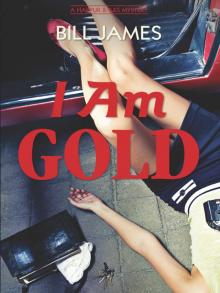 I Am Gold
I Am Gold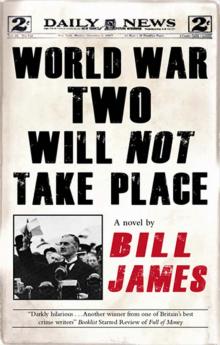 World War Two Will Not Take Place
World War Two Will Not Take Place Pix (Volume Book 24) (Harpur & Iles Mysteries)
Pix (Volume Book 24) (Harpur & Iles Mysteries)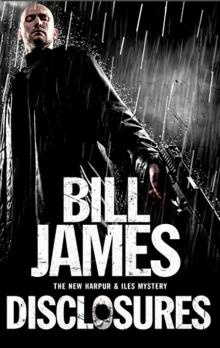 Disclosures
Disclosures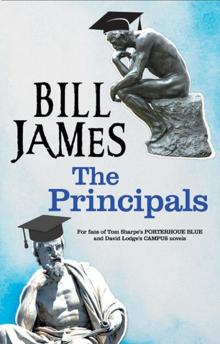 The Principals
The Principals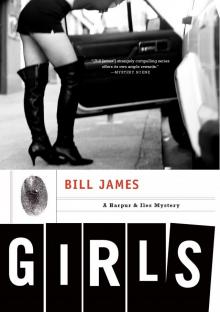 Girls
Girls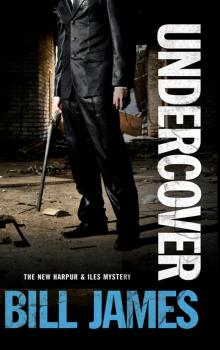 Undercover
Undercover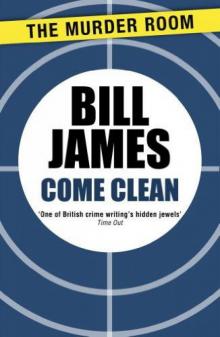 Come Clean (1989)
Come Clean (1989)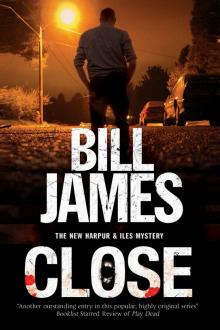 Close
Close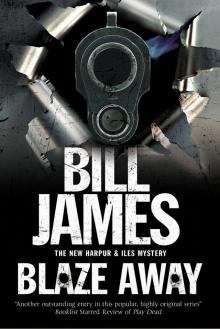 Blaze Away
Blaze Away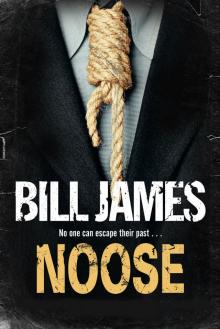 Noose
Noose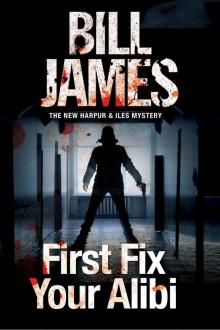 First Fix Your Alibi
First Fix Your Alibi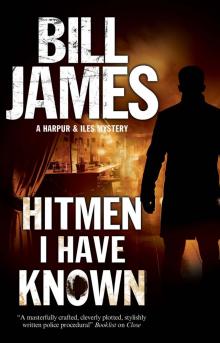 Hitmen I Have Known
Hitmen I Have Known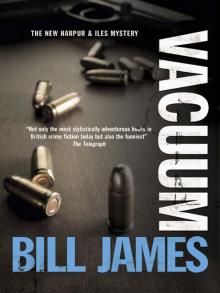 Vacuum
Vacuum Play Dead
Play Dead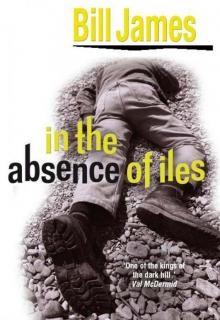 In the Absence of Iles
In the Absence of Iles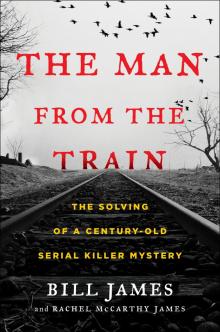 The Man from the Train
The Man from the Train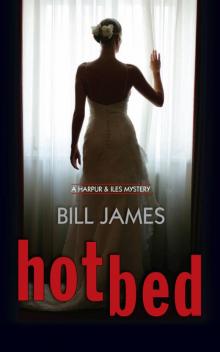 Hotbed
Hotbed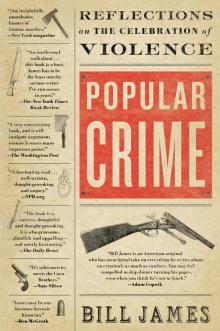 Popular Crime
Popular Crime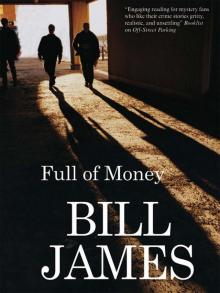 Full of Money
Full of Money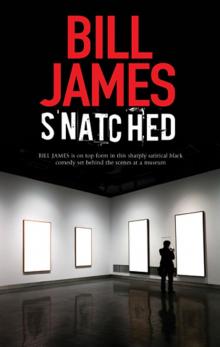 Snatched
Snatched